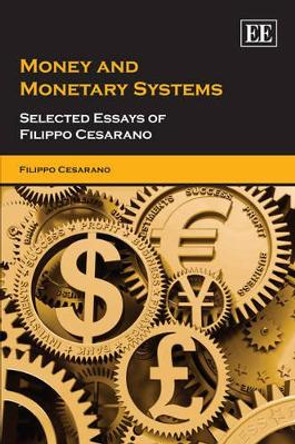Description
This book argues that advances in monetary theory played a decisive role in the Bretton Woods Agreements of July 1944.
About the Author
Filippo Cesarano is the head of the Historical Research Office of the Bank of Italy. He studied at the University of Rome and the University of Chicago and has been a Research Fellow at the Netherlands School of Economics and a visiting scholar at UCLA, Harvard, and the Hoover Institution. As an economist at the Research Department of the Bank of Italy, he has worked in the fields of monetary theory, international economics, and the history of economic analysis. He has published articles in the American Economic Review, History of Political Economy, the Journal of Economic Behavior and Organization, and the Journal of International Economics, among others.
Reviews
'Filippo Cesarano has written a masterful survey of the literature on the evolution of the global regime from the classical gold standard to the present era of fiat money. The book is a must-read for any serious scholar of the international monetary system. His careful interweave of economic history, the history of economic doctrine, and modern monetary theory reveals the importance of the principles of monetary theory for the successes and failures of the sequence of monetary regimes from the pre-1914 gold standard, to the gold exchange standard, to Bretton Woods, and to the present penchant for monetary unions.' Michael Bordo, Rutgers University
'Cesarano has written a splendid book. As a long-run economic explanation for the origins, life, and collapse of Bretton Woods, it is difficult to see how it could be bettered.' Forrest Capie, Economic History Review
'Monetary Theory and Bretton Woods shows conclusively that the evolution of monetary doctrines is best understood if studied in the light of the challenges of policy making in a complex interdependent world. The result is a fascinating account that skillfully combines the history of monetary theory with the history of the international monetary system.' Marc Flandreau, Institut d'Etudes Politiques de Paris
'In a bold extension of a more familiar economic logic, Filippo Cesarano argues that theoretical thinking is a central, even decisive, part of what shapes society's economic institutions. Cesarano's book stands out for the novelty and importance of his core argument as well as the force with which he combines the history of ideas and the history of events to support it.' Benjamin Friedman, Harvard University
'This study deserves the attention not just of the intellectual historian but also of any practically minded reader who is seeking a deeper understanding of today's international monetary system.' David Laidler, University of Western Ontario
'... Cesarano rediscovers and distils the ideas of dozens of economists.' Journal of European Economic History
Book Information
ISBN 9780521739092
Author Filippo Cesarano
Format Paperback
Page Count 264
Imprint Cambridge University Press
Publisher Cambridge University Press
Weight(grams) 390g
Dimensions(mm) 221mm * 150mm * 20mm








